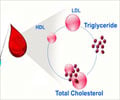Although vegan diets have risks, education and a diversity of motivations can help men adopt a sustainable vegan diet.
- Traditional stereotypes linking meat consumption with masculinity persist, with men embracing meat-heavy meals as symbols of their manliness
- Yet, innovative marketing strategies are challenging these stereotypes by emphasizing veganism's health benefits and aligning it with masculine values
- While the risks of a poorly balanced vegan diet exist, education and diverse motivations can help men adopt a healthy and sustainable vegan lifestyle
To challenge this stereotype and encourage more men to adopt a vegan diet, innovative marketing strategies are emerging, leveraging a masculine appeal to change the narrative (1✔ ✔Trusted Source
Veganism, Moral Motivation and False Consciousness
Go to source).
The Power of Masculine Appeal in Shifting Dietary Choices
Stereotypical gender roles associating meat consumption with masculinity have deep roots in society. However, recent shifts in marketing and the rise of prominent vegan men are challenging these stereotypes.Veganism's health benefits are being promoted through documentaries like ‘The Game Changers,’ featuring athletes like Arnold Schwarzenegger who emphasize that meat is not necessarily healthy or essential for masculinity.
Despite these efforts, meat is still aggressively marketed to men, leading to excessive consumption linked to health issues. The correlation between meat and masculinity needs to be dismantled through education and a shift in cultural perceptions.
Marketing campaigns are now highlighting male athletes, bodybuilders, and celebrities who have embraced plant-based diets and achieved remarkable feats. These success stories not only challenge the notion that veganism is inherently feminine but also inspire other men to explore the benefits of this lifestyle.
Making Veganism Appealing to Men's Values
Masculine marketing approaches often focus on strength, power, and values like responsibility and discipline. Brands are recognizing the opportunity to align veganism with these principles. Campaigns emphasizing the positive impact of plant-based diets on physical strength, mental clarity, and ethical responsibility are resonating with men and reshaping their perceptions of veganism.Another way to entice men into veganism is by presenting it as a culinary adventure. By showcasing mouthwatering, protein-rich vegan recipes that mirror the flavors and textures of their favorite meat-based dishes, men can be encouraged to explore the delicious side of plant-based eating. Cooking classes and recipe-sharing platforms are valuable tools in this endeavor.
Beyond Health and Fitness
While health and fitness are powerful motivators for many men, it's essential to recognize that there are various entry points to veganism. Some may be drawn by the environmental benefits, while others may be swayed by animal welfare concerns or a desire to improve overall well-being. Effective marketing should encompass these diverse motivations.Risks of Veganism among Men
A vegan diet, which excludes all animal products, can offer numerous health benefits, including lower risk of heart disease, certain cancers, and improved weight management. However, there are potential risks associated with a vegan diet if not carefully planned.These risks include nutrient deficiencies, particularly in vitamin B12, iron, calcium, and omega-3 fatty acids. Vegans should be mindful to incorporate fortified foods or supplements to meet these nutritional needs.
Additionally, a poorly balanced vegan diet may lead to inadequate protein intake, impacting muscle and tissue health. To mitigate these risks, proper planning and a variety of plant-based foods are essential for a healthy vegan lifestyle.
In challenging stereotypes and utilizing masculine marketing approaches, we have the potential to revolutionize the way society views veganism. By promoting veganism as a lifestyle choice that aligns with strength, ethics, and culinary enjoyment, we can inspire more men to make the switch to a plant-based diet. As men increasingly embrace veganism, we move closer to a more sustainable, healthier, and compassionate world.
Reference:
- Veganism, Moral Motivation and False Consciousness - (https://www.ncbi.nlm.nih.gov/pmc/articles/PMC8058141/)
Source-Medindia














